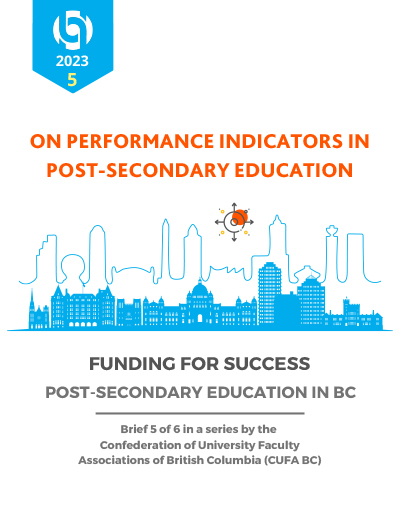Funding models for post-secondary education increasingly focus on performance indicators. Yet this approach doesn’t necessarily improve university outcomes or provide a true measure of success.
Performance indicators currently suggest that BC’s research universities are thriving. What they don’t show is that class sizes have increased, faculty hiring is stagnating, and students have fewer opportunities to form a relationship with a tenured professor.
What’s more, existing performance indicators often overlook generational benefits. University education increases graduates’ earning ability and participation in the labour force, thereby creating a virtuous circle where adequate funding today increases potential funding in the future.
In this paper, we examine outcome-focused funding models to understand their conditions and interrogate their relevance.This is the fifth brief in a six-part series, Funding for Success: Post-Secondary Education in BC.
“Often what is overlooked in these myopic systems are the generational dividends that more than compensate for the short-term cost of post-secondary education.”
- Excerpt

